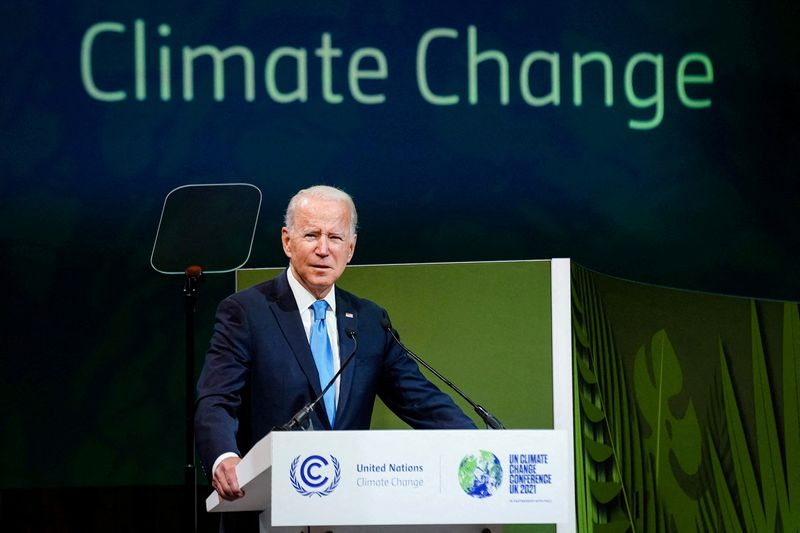By Ross Kerber
(Reuters) - Large companies, including asset manager Franklin Templeton and web-services provider Akamai Technologies Inc (NASDAQ:AKAM), joined an effort on Thursday to defend sustainable investment practices from a backlash by U.S. Republican politicians.
The companies signed a statement that also drew backing from leaders of major pension funds in Democratic-leaning states New York and California, and religious and progressively-minded investors.
The signatories pledged they were "wholly committed to sustainability and addressing the financial impacts of climate change" and called on policymakers to "protect the freedom to invest responsibly".
Pressure is mounting from many sides ahead of decisions including long-anticipated guidance for companies' climate-related disclosures, which the U.S. Securities and Exchange Commission is due to issue possibly as early as next month.
Republicans, often from energy-producing states, have sought to block the growing use of environmental, social and governance (ESG) considerations by shareholders and corporate executives.
Earlier this week U.S. President Joe Biden used his first veto to reject restrictions on ESG factors by pension fund managers.
While Thursday's statement was in line with past comments by signatories such as the California State Teachers' Retirement System, Franklin's presence sets it apart from rival asset managers that have sought middle ground between right-wing criticism and calls from climate activists urging companies to do more to address rising global temperatures.
BlackRock Inc (NYSE:BLK) for instance on Thursday said it would continue to press companies for information about climate risks.
Mindy Lubber, CEO of sustainability nonprofit Ceres, which organized Thursday's statement, told a call with reporters that companies showed "some hesitancy" to speak up.

But Anne Simpson, head of sustainability for Franklin Templeton, part of California-based Franklin Resources Inc (NYSE:BEN), said on the same call that ESG efforts are "fiduciary duty at work".
In a separate statement, she said the company would be failing in that duty if it did not "pay attention to the accelerating frequency of severe weather disasters and the hundreds of billions of dollars they cause".